Seattleish has a thorough report on a class-action lawsuit filed by volunteers, known as “minions” for the 2014 and 2015 Emerald City Comic Cons. Minions worked varius duties in exchange for access to the convention, an action that many joyfully accepted. However the use of unpaid labor to keep massive conventions running (ECC drew over […]
Viewing: Blog Posts Tagged with: Legal Matters, Most Recent at Top [Help]
Results 1 - 25 of 276
Blog: PW -The Beat (Login to Add to MyJacketFlap)
JacketFlap tags: Legal Matters, Conventions, eccc, Add a tag
Blog: PW -The Beat (Login to Add to MyJacketFlap)
JacketFlap tags: Legal Matters, Conventions, Add a tag
The other day I ran a story about a guy named Jonathon Wall who is being charged with a felony in Utah for trying to use his Federal ID to get into what was claimed to be a "$10,000 VIP room" at the Salt Lake City Comic Con. Something about that didn't set right with me.
Blog: PW -The Beat (Login to Add to MyJacketFlap)
JacketFlap tags: salt lake city comic con, Legal Matters, Conventions, Add a tag
Wow, this story has it all. Unattainable glamour, a desperate scheme, legal drama. And a mystery I can't answer.
Blog: PW -The Beat (Login to Add to MyJacketFlap)
JacketFlap tags: DC, Legal Matters, Superman, Add a tag
What may just be the FINAL final decision in the long running case to get the rights to Superman back to the Siegel family was announced on Wednesday, with the 9th Circuit Court of Appeals ruling in Warner Bros. favor, citing that a 2001 agreement signed by the late Joanna Siegel was in fact binding. […]
Blog: PW -The Beat (Login to Add to MyJacketFlap)
JacketFlap tags: Legal Matters, Conventions, San Diego Comic Con, Con Wars!, salt lake city comic con, Add a tag
 The ongoing trademark battle between Salt Lake City Comic Con and the San Diego Comic-Con may be closer to settling, although it’s only listed as “promising,” with the judge in the case giving them more time to hash things out mano a mano. The two sides are set to meet with the judge this Wednesday […]
The ongoing trademark battle between Salt Lake City Comic Con and the San Diego Comic-Con may be closer to settling, although it’s only listed as “promising,” with the judge in the case giving them more time to hash things out mano a mano. The two sides are set to meet with the judge this Wednesday […]
Blog: PW -The Beat (Login to Add to MyJacketFlap)
JacketFlap tags: Top News, Legal Matters, SDCC, Add a tag
Matthew Pocci, a Comic-Con volunteer who ran over a woman during the 2014 SDCC ZombieWalk was found guilty yesterday and now faced up to three years in prison. The jury deliberated only a day to reach its verdict. Pocci, who is deaf, was leaving the convention center and become caught in a crush of people […]
Blog: PW -The Beat (Login to Add to MyJacketFlap)
JacketFlap tags: 9th circuit, daniel petrocelli, marc toberoff, oral argument, News, law, DC, Legal Matters, Commentary, Superman, Breaking News, siegel, court, Superboy, Top News, The Legal View, toberoff, Controversy!, Add a tag
Today’s oral argument in the Siegel case is up on YouTube – and no, this isn’t a rickroll. As noted in my article reporting on the scheduling of today’s panel, the odds did not appear to be in the favor of the Siegel appeal, and the judges’ questions and comments did little to dispel that […]
Blog: PW -The Beat (Login to Add to MyJacketFlap)
JacketFlap tags: shootings, Helloween!, Top News, The Legal View, Top Comics, SDCC '14, ZombiCon, Comics, Sociology, Legal Matters, Conventions, Culture, Image, Breaking News, guns, Walking Dead, crowds, Add a tag
Gunfire at the Ft. Myers charitable event created a real-life running zombie herd, but the organizers’ security safeguards may have helped prevent further harm. Shootings have become a depressing fact of life here in the U.S. — and for those of you who spent a fair amount of time in New York and other large […]
Blog: PW -The Beat (Login to Add to MyJacketFlap)
JacketFlap tags: News, law, legal matters, Superman, Breaking News, siegel, DC Comics, The Legal View, toberoff, legal view, Add a tag
The latest hearing in the Siegel family lawsuits has been scheduled for Tuesday, November 3 — but if you think this points to an undoing of their losses to this point, don’t get too excited. At this point Marc Toberoff’s attempts to revive the Siegel case seem like the legal world’s version of trying to […]
Blog: PW -The Beat (Login to Add to MyJacketFlap)
JacketFlap tags: Diversity, Comics, Legal Matters, Conventions, mental health, Culture, trends, Captain America, Fandom, NYCC, Top News, The Legal View, NYCC'15, NYCC '15, eddie newsome, Add a tag
Diversity is a recurring theme in panels at this year’s New York Comic-Con, mirroring a trend in fandom nationwide. Race, gender, physical ability, mental health, even geeks as an emerging protected class – amidst the how-to’s and PR announcements, programming about diversity is filling rooms and getting headlines. The power of this theme is something […]
Blog: PW -The Beat (Login to Add to MyJacketFlap)
JacketFlap tags: Fandom, Top Cow, Top News, News, Legal Matters, Add a tag
Dragon-Con has the reputation for being an no holds barred exploration of fantasy and cosplay. It draws a lot of lookie-loos, as well, and there have been reports of harassment incidents for some time. Now, sadly, there is a report of a sexual assault that took place Sunday night. The victim has been drinking and […]
Blog: PW -The Beat (Login to Add to MyJacketFlap)
JacketFlap tags: Legal Matters, They hate us!, guns, pokemon, Top News, Add a tag
With cons and fan events growing in popularity, and shooting an almost everyday occurrence here in the US, one wonders if there will ever be an "incident" at a con. Well here's one that MAY have been thwarted. It seems two invited participants in the Pokémon World Championships were arrested after making some online threats and showing up armed to the teeth:
Blog: PW -The Beat (Login to Add to MyJacketFlap)
JacketFlap tags: Legal Matters, Top News, Crowdfunding, Add a tag
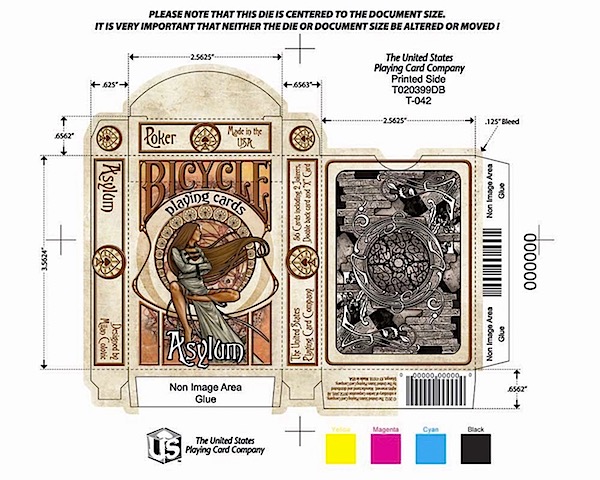 As crowdsourcing has become a normal part of financing creative projects, a few bad apples have soured the barrel with non delivery. A few months ago, the FTC announced it would start looking in to Kickstarters that don't deliver and now a Seattle court has ordered the creators of the Asylum Playing Cards Kickstarter—Altius Management and Edward J. Polchlopek—to pay over $54,000 in fines and settlement.
As crowdsourcing has become a normal part of financing creative projects, a few bad apples have soured the barrel with non delivery. A few months ago, the FTC announced it would start looking in to Kickstarters that don't deliver and now a Seattle court has ordered the creators of the Asylum Playing Cards Kickstarter—Altius Management and Edward J. Polchlopek—to pay over $54,000 in fines and settlement.
Blog: PW -The Beat (Login to Add to MyJacketFlap)
JacketFlap tags: Legal Matters, Conventions, SDCC, trademarks, Top News, salt lake comic con, Add a tag
The ongoing legal battle over the trademark of the term "comic-con" between The San Diego Comic-Con (or to give it it's official name: Comic-Con International: San Diego) and the Salt Lake Comic Con flared up a bit yesterday when the SLC group claimed a win by being granted a trademark:
Blog: PW -The Beat (Login to Add to MyJacketFlap)
JacketFlap tags: Diversity, Cartoonists, DC, Legal Matters, Indies, Announcements, Culture, Commentary, They hate us!, Breaking News, surprise, Collectibles, End of the World, NBM, DDGB, Legendary, Big Two Comics, Geoff Johns, black lightning, Dan DiDio, Top News, The Legal View, Tony Isabella, Controversy!, News, Reviews, Add a tag
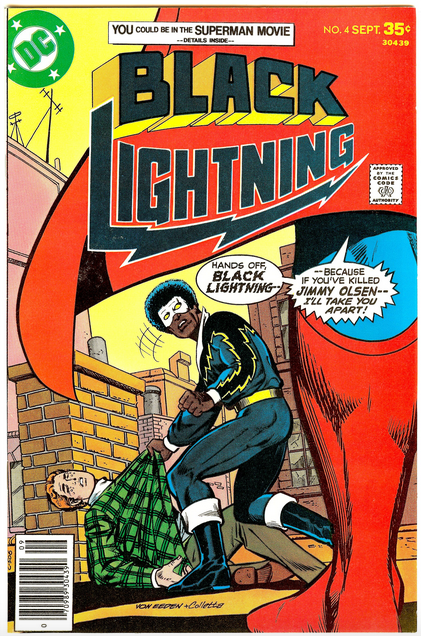 “Dogs and cats, living together!” – that’s what immediately popped into my mind yesterday when I read Tony Isabella praising DC on Facebook for how it was treating him in regard to Black Lightning.I’ve never seen the original contract between DC and Isabella in regard to Black Lightning so I have nothing to say of substance in regard to the property’s legal status, but as anyone who has followed Tony’s online writing over the years can tell you, Isabella’s statements about DC’s treatment of him and his landmark creation have not exactly been complimentary. That changed, however, yesterday, when Isabella called attention to an Amazon listing of the April 2016 release of Black Lightning, volume 1, the first of what could be a series of collections featuring DC’s first African-American superhero to star in an an eponymous book.
“Dogs and cats, living together!” – that’s what immediately popped into my mind yesterday when I read Tony Isabella praising DC on Facebook for how it was treating him in regard to Black Lightning.I’ve never seen the original contract between DC and Isabella in regard to Black Lightning so I have nothing to say of substance in regard to the property’s legal status, but as anyone who has followed Tony’s online writing over the years can tell you, Isabella’s statements about DC’s treatment of him and his landmark creation have not exactly been complimentary. That changed, however, yesterday, when Isabella called attention to an Amazon listing of the April 2016 release of Black Lightning, volume 1, the first of what could be a series of collections featuring DC’s first African-American superhero to star in an an eponymous book.
According to Isabella, the rapprochement is the result of outreach by Dan Didio and Geoff Johns, and Isabella is confident that DC will treat him fairly in regard to the payment of royalties. He also raised the possibility of doing more work for DC given sufficient reader demand; the prospect of Isabella working with, say, the creators of the revived Milestone line on a multi-generational crossover is particularly intriguing, given certain thematic resonances with Milestone’s nuanced reflections on creative identity.
To say that Isabella’s announcement is the most unexpected Facebook post of the year is an understatement — it’s one of the most dramatic turnarounds I’ve seen in decades of reading about comics-related disputes, and kudos to all involved for bringing about what I hope will be a truly lasting peace in our time.
Blog: PW -The Beat (Login to Add to MyJacketFlap)
JacketFlap tags: The Beat, Diversity, ethics, Legal Matters, Comics Still Wonderful In Spite Of It All, comics journalism, Top News, The Legal View, SDCC '15, Controversy!, Add a tag
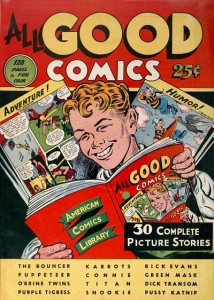 Reflecting on The Beat’s comics journalism ethics panel tonight at San Diego Comic-Con, my thoughts keep going back to the comics community – who we are, where we’re going, and what can keep us all connected however much we grow.
Reflecting on The Beat’s comics journalism ethics panel tonight at San Diego Comic-Con, my thoughts keep going back to the comics community – who we are, where we’re going, and what can keep us all connected however much we grow.
For all the online conversation, the panel went without incident. I ended up reluctantly having to cut off someone who I learned afterward was from the Gamergate perspective after his second or third point, but that was due to the program’s time limits and not any issue with his questions, which were thoughtful and well-received by the panel — the discussion of how Agent Carter makes a woman’s agency its central them was quite illuminating.
Jamie Coville will no doubt post the whole audio, so it’s only a matter of time before you too can hear the panelists’ brilliant insights, interrupted on occasion by my not-so-brilliant calling out their names: Heidi MacDonald, our intrepid leader; Donna Dickens, James Viscardi, Casey Gilley, Joe Illidge, and Brett Schenker.
One of the things that was great about this panel was that the speakers grounded their discussion of ethics in the comics community, and in so doing they expressed the essence of ethics itself. A lot of folks think of ethics primarily in terms of rules or abstract decision making principles, such as avoiding conflicts of interest or protecting the environment. Those can be important, but ethics is fundamentally an extension of ethos – it’s about who we are as individuals and groups.
And as becomes more than evident at conventions, comics people — and gamers, genre film & theater folks, and everyone else in this extended happy network of geeks, nerds, and dorks – are more than just faceless consumers. We’re a community connected by shared interests and values, and we’re all part of the conversation, not just the people who self-identify as journalists or scribble online. We don’t agree on everything, of course, but as the panel emphasized, by following the fundamental ethical principles of understanding and mutual respect, we can talk about our differences in ways that only strengthen our bonds.
However, as the panel also noted, our community of communities is growing to scale — our little niche interests have gone truly global, and even as we engage each other over whether various items and actions truly reflect our communal values, millions of people are coming to the stuff we like without a thorough grounding in our up ’til now shared experience, let alone the unassailable arguments as to why Crisis on Infinite Earths was the greatest crossover of all time. The influx of fans has tremendous potential for extending our community’s influence, but it also brings with it a heightened risk of fragmentation to the point of dissolving, or at best reducing to a network of shared interests that doesn’t go beyond what we see on a screen.
So we talk and write, explain and argue, with neutral just-the-facts articles when they help us gather useful knowledge and principled arguments for what we believe is right. That’s what we’ll all keep doing online and ultimately, that’s what makes comic-cons so important. Just as they gave us a chance to talk about what we talk about when we talk about ethics, they provide a forum of all of us, old and new, to learn about each other and ourselves.
Blog: PW -The Beat (Login to Add to MyJacketFlap)
JacketFlap tags: law, Internet, Legal Matters, tech, Breaking News, fraud, Crime, ftc, Kickstarter, Top News, The Legal View, Crowdfunding, Add a tag
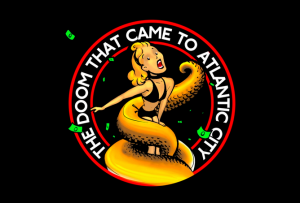 The Federal Trade Commission has just sent a press release touting its first successful action against a failed Kickstarter campaign.
The Federal Trade Commission has just sent a press release touting its first successful action against a failed Kickstarter campaign.
The FTC’s mission is to protect consumers from false or misleading advertising, and as part of its new FinTech program the agency is developing new strategies for curbing deceptive practices online. Target #1: The Doom That Came to Atlantic City, a crowdfunded vaporware boardgame that netted more than $122,000 for its would-be creator.
Anyone planning to start a Kickstarter campaign might want to consider what the FTC found wrong with this failed campaign and the penalties imposed in the resulting settlement. And if you’re wondering what this case could mean for the future, the FTC is hosting a Twitter chat with its attorneys today (Thursday, June 11) from 2-3pm.
Here’s the scoop from the FTC’s press release:
In its first case involving crowdfunding, the Federal Trade Commission has taken legal action against the deceptive tactics of a project creator who raised money from consumers to produce a board game through a Kickstarter campaign, but instead used most of the funds on himself. The defendant has agreed to a settlement that prohibits him from deceptive representations related to any crowdfunding campaigns in the future and requires him to honor any stated refund policy….
According to the FTC’s complaint, Chevalier represented in his Doom campaign on Kickstarter.com that if he raised $35,000, backers would get certain rewards, such as a copy of the game or specially designed pewter game figurines. He raised more than $122,000 from 1,246 backers, most of whom pledged $75 or more in the hopes of getting the highly prized figurines. He represented in a number of updates that he was making progress on the game. But after 14 months, Chevalier announced that he was canceling the project and refunding his backers’ money.
Despite Chevalier’s promises he did not provide the rewards, nor did he provide refunds to his backers. In fact, according to the FTC’s complaint, Chevalier spent most of the money on unrelated personal expenses such as rent, moving himself to Oregon, personal equipment, and licenses for a different project.
Under the settlement order, Chevalier is prohibited from making misrepresentations about any crowdfunding campaign and from failing to honor stated refund policies. He is also barred from disclosing or otherwise benefiting from customers’ personal information, and failing to dispose of such information properly. The order imposes a $111,793.71 judgment that will be suspended due to Chevalier’s inability to pay. The full amount will become due immediately if he is found to have misrepresented his financial condition.
This case is part of the FTC’s ongoing work to protect consumers taking advantage of new and emerging financial technology, also known as FinTech. As technological advances expand the ways consumers can store, share, and spend money, the FTC is working to keep consumers protected while encouraging innovation for consumers’ benefit.
Blog: PW -The Beat (Login to Add to MyJacketFlap)
JacketFlap tags: Top News, shocking!, Legal Matters, World Comics, Tintin, Add a tag
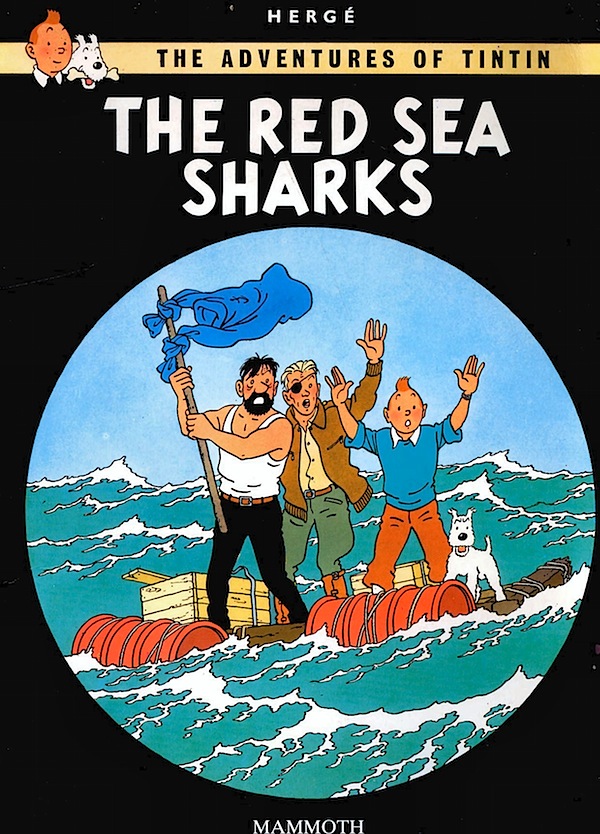
In a shocking court reveal over the fate of one of the world’s most beloved and influential comics characters, a Dutch court has ruled that Moulinsart, the company that runs the publishing and licensing business of Tintin, does not own all the rights.
The stunning result came about during a court case in which Moulinsart sued a Dutch Tintin fanclub over using images of George “Hergé” Remi’s beloved boy reporter. Moulinsart is known for pursuing any and all outside uses of the character, even benign ones such as fanzines.
During the case, a legal document from 1942 was produced showing that Hergé had assigned the rights to the character to his publisher, Casterman.
The Hergé estate is currently run by the man who married Hergé’s widow, and he’s quite unpopular with fans and industry watchers, for running the estate with an iron fist, including such things as suing fanclubs over use. That this stunning document showed up in just such a case is a twist that you’d find incredulous in a film. But it really happened.
It’s kind of hard to give context to this, but it’s like, let’s say sometime in the future Prince George is about to ascend to the throne of England, and someone suddenly produces a paper saying Queen Elizabeth was actually from New Jersey and was never queen.
“It appears from a 1942 document… that Herge gave publishing rights for the books of the adventures of Tintin to publisher Casterman so Moulinsart is not the one to decide who can use material from the books,” said the Hague court’s ruling, seen by AFP on Monday.
The document came from a Herge expert who wishes to remain anonymous and its validity has not been contested by Moulinsart or the author’s family.
“The big question is to know whether they (other fanclubs) have to continue paying Moulinsart,” said Herge Society secretary Stijn Verbeek.
So yeah, some Tintin fan was sitting there going “Suffering succotash!” while sitting on an explosive document that would affect the ownership of the character considered the most influential in the history of Franco-Belgian comics. And to think that perhaps people at Casterman or even the Hergé family themselves knew of it…and kept this secret for years. Like I said, it’s an amazing storyline.
Tom Spurgeon has a lot more background on this including comments from euro-comics expert Bart Beaty:
“Reaction in my social media has been a mixture of pure shock — my own first reaction — and a good deal of joy. It is important to bear in mind that Nick Rodwell, who runs Moulinsart, is one of the most disliked people in European comics amongst fans. The husband of Hergé’s second wife, he has taken hold of the Tintin empire and consistently reined over it in a way that antagonizes fans and scholars (Moulinsart is relentless in the protection of the Tintin copyrights even to the point of discouraging academic study of the Tintin books). More than a few people feel that Casterman would be better stewards of the Hergé legacy than the man who married his widow.
Here’s some more from a 2010 newspaper piece that documents growing unease with Rodwell’s running of the estate:
Hergé himself had given little thought to the business of merchandising. “He was involved only in his creation, in his works,” Vlamynck told a French television interviewer last year. He had all but forgone any oversight of Tintin merchandising as part of a deal to restore his reputation in 1945. Hergé had produced comic strips for Le Soir newspaper throughout the war, even after it came under the control of the occupying Germans. His perceived collaboration barred him from newspaper work at the end of the war. Raymond Leblanc, a prominent Belgian resistance figure, offered him a solution: Leblanc lent Hergé some of his anti-Nazi credentials by going into partnership with him; in exchange, Hergé licensed his hero’s image for use as a marketing tool. Forever conscious of the favour, he never broke off the deal; the Tintin-branded mustard pots and more were the result.
Under Rodwell, this began to change. Moulinsart terminated all but a few of its long-running licensing contracts. It was not that the group wanted to curb Tintin’s appearances totally but Rodwell hoped to control the brand more effectively and apply more consistent standards by developing products in-house. What emerged over time was a centralised merchandising policy that pushed the brand relentlessly upmarket. The number of retailers authorised to sell the goods was reduced, creating a scarcity that had not existed before. It reflected the new ambitions: Rodwell began speaking of Tintin as the “Rolls-Royce” of comics, unworthy of being associated with cheap trinkets and give-aways.
Lots more background in that link.
This stunning result will doubtless have major implications for the Tintin books going forward—a publishing series that has already been published in more than 70 languages and sold more than 200 million copies. Back royalties? Refunded rights? Oh boy…developing.
Blog: PW -The Beat (Login to Add to MyJacketFlap)
JacketFlap tags: baseball, Legal Matters, Conventions, Fandom, SDCC, employees, NYCC, volunteers, javits center, Con Wars!, C2E2, Top News, The Legal View, Image Expo, eccc, labor law, the mary sue, Add a tag
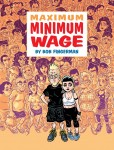 Yesterday The Mary Sue published an article noting that for-profit comic-cons might be violating federal labor law by not paying minimum wage to workers improperly classified as volunteers. However, a recent case involving Major League Baseball shows how commercial comic-cons could beat the tag.
Yesterday The Mary Sue published an article noting that for-profit comic-cons might be violating federal labor law by not paying minimum wage to workers improperly classified as volunteers. However, a recent case involving Major League Baseball shows how commercial comic-cons could beat the tag.
The use of free labor by for-profit companies has become a hot issue in recent years. Internships have become a particularly touchy topic – class action lawsuits by former interns have prompted some companies to end their unpaid internship programs, although there are at least a couple high-profile cases on appeal in which companies are challenging the Department of Labor’s standards for determining whether an intern is actually an employee.
Given how costly it can be for a company to fall afoul of federal law on this issue, it is indeed prudent for the companies that run comic conventions to assess whether it is legal for them to use unpaid volunteers. This is especially conventions run by for-profit companies, since charitable nonprofits enjoy a special exemption from minimum wage and overtime requirements in regard to volunteers. The Mary Sue has once again performed a service to the community in calling attention to this important issue.
With that in mind, in making this analysis it’s important to be aware of both the law’s requirements, the specific practices of each company, and the exemptions that are available outside the one given to charities.
First, since conventions produced by ReedPop — NYCC, ECCC, C2E2 — were mentioned in the post, it’s worth noting, as several “volunteers” have stated in the original comments thread and a related Reddit thread, that ReedPop pays volunteers minimum wage as official crew. Calling people volunteers in this context is a great way to foster a sense of community and community — one of things for which Lance Fensterman and company are to be commended is the way that they have fostered this communal sensibility while maximizing return on investment.
But not every for-profit comic-con that brings on volunteers gives these workers compensation – in fact, depending on the convention, you might actually be required to pay a fee for the privilege of helping the company out! Although this may seem on its face like a violation of federal law, there’s a legal loophole that has enabled countless commercial businesses to use volunteers in the standard sense of term.
Over the years the federal Fair Labor Standards Act has accumulated dozens of exemptions for a wide range of ventures, from homemakers making wreaths to C-level executives. For a company that operates a program taking place within a limited period of time during the year, there is one exemption in particular that catches the corporate attorney’s eye: minimum wage and overtime requirements do not apply to “any employee employed by an establishment which is an amusement or recreational establishment…” that operates no more than seven months a year or meets a financial test as to revenue generated at different times of the year. (29 USC 213(a)(3))
There are several cases that show how a commercial comic-con can take advantage of this provision, but the ruling perhaps most on-point was issued just a year ago in the Southern District of New York – coincidentally, the same federal district in which the New York Comic-Con takes place. Chen v. Major League Baseball Properties was brought by a former volunteer for the 2013 All-Star Week FanFest at the Javits Center (!), and the volunteer made arguments similar to those made in the intern lawsuits: volunteers at the event met the criteria for employee status, and thus Major League Baseball should have paid them at least minimum wage.
Major League Baseball — and the court — disagreed. As the court observed, although Major League Baseball operates all year long, Department of Labor regulations distinguish an entire enterprise from an “establishment,” which specifically refers to “a distinct place of business.” The exemption was put in place to accommodate seasonal ventures employing people for discrete periods of time in activities that might offer “non-monetary rewards.” The court concluded Major League Baseball’s FanFest was analogous to the amusement and recreational activities in view when legislators originally enacted the exemption, and the plaintiff’s federal as well as state law claims were summarily dismissed.
The plaintiff has appealed the district court’s ruling – in fact, it was argued in the Second Circuit U.S. Court of Appeals today, March 30 – but as noted above, there are a number of cases in other circuits that have reached similar conclusions. What’s more, even if the appeal succeeds, the main case being cited in opposition focuses on aspects of one baseball team’s operations that are distinguishable from a comic-con. For instance, while the team in question utilized its stadium for events throughout much of the year, comic-cons typically take place in rented facilities for discrete periods of time.
The analysis gets somewhat trickier for an entity operating multiple conventions. For instance, let’s assume that Wizard World doesn’t pay its volunteers — there’s nothing about compensation in the volunteer information packet, at least; Wizard World volunteers don’t even get munchies or parking reimbursements. The fact that Wizard World operates year-round could be grounds for arguing that the seasonal establishment exemption doesn’t apply, but there are also clever counter-arguments and organizational strategies that could persuade a court to disagree. Others have tried and succeeded with even more daunting facts – which, on a related front, is why the NCAA doesn’t have to pay taxes on ads sold for March Madness.
The seasonal exemption has long been a lifeline for companies offering an opportunity to volunteer for ventures that operate on a limited-term basis, such as amusement parks, outdoor swimming pools, Oprah’s Life You Want Tour, and New York Fashion Week. If you are an unpaid commercial comic-con volunteer who believes a lawsuit for back wages would be a clear home run, expect Major League Baseball Properties and cases like it to be deployed to strike you out.
Blog: PW -The Beat (Login to Add to MyJacketFlap)
JacketFlap tags: Legal Matters, Top News, Molly Crabapple, Add a tag

The FBI has amassed a 7,526 page file on cartoonist/essayist Molly Crabapple, as she tweeted the other day. Crabapple’s lawyer has filed to see the papers under the Freedom of Information Act, and the FBI will reviews them 750 pages a month and pass along ones they deem fit for Crabapple to see.
What has Crabapple done to merit such attention?
Created Dr Sketchy’s Anti-Art School
Documented and helped organize the original Occupy movement at Wall Street
Crowdfunded “Molly Crabapple’s “Week in Hell” performance art piece
Was arrested during a protest on the one year anniversary of Occupy
Kickstarted a series of paintings about “The Great Recession”
Visited the Guantanamo Bay prison and wrote about it for Vice
Obviously some dangerous stuff there. HOpefully they have equally large files on actually dangerous wackadoos.
Blog: PW -The Beat (Login to Add to MyJacketFlap)
JacketFlap tags: News, diversity, law, Sociology, Legal Matters, Culture, Commentary, New York City, Legal, Top News, The Legal View, ferguson, eric garner, progressivism, Add a tag
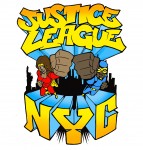 On Friday New York City Mayor Bill deBlasio met with protestors to discuss their demands for police reform after the shocking death of Eric Garner and the controversial grand jury decision that followed. The name of the activists’ organization will sound familiar to any comics fan: Justice League NYC.
On Friday New York City Mayor Bill deBlasio met with protestors to discuss their demands for police reform after the shocking death of Eric Garner and the controversial grand jury decision that followed. The name of the activists’ organization will sound familiar to any comics fan: Justice League NYC.
That this prominent group of social justice warriors would share a name with DC Entertainment’s leading super-team is no coincidence. Just check out the group’s logo, which features two African-American superheroes flying out of New York City through a graffiti-style logo. Dig even deeper into contemporary activism’s history and we see even more connections: Ferguson protestors formed their own Justice League over the summer, a leading progressive journalist writes at JusticeLeagueTaskForce.wordpress.com, and as pretty much everyone here knows, the Occupy movement made the V for Vendetta Guy Fawkes’ mask a global icon.
The role of comics in recent protests will no doubt be the subject of any number of academic papers, most of which will bear a punny coloned title like “DC Nation: From Social Relevance Comics to Social Change.” Yet before folks explore what all this means at greater length, I want to offer a quick note on how this phenomenon ties into comics’ uneasy relationship with the law.
Before Photoshop and Final Cut made it possible for anyone to transcend their innate limitations, comics offered a cheap and easy way for people to give a visible form to their wildest thoughts. They became pop culture’s analogue to law as the magic mirror of society — photos may have showed us how the other half lives, but in comics we could create the world of tomorrow, free from the strictures of budget, politics, injury, death, and the real world’s ineffective legal system. What’s more, comics also did away with the shadows and fog that even today make inquiries such as the Serial podcast so frustrating — in the comics world we know who is good, who is evil, and who will win; the big question is how good will triumph.
That sensibility is in comics’ DNA, to both good and ill effect. An unreflective transfer of the comics’ approach to seemingly intractable problems would at its most extreme result in moral nihilism, as violence becomes the standard means of removing any obstacle to achieving what is right. At the same time, the comics’ metaphorical blend of constructive critique and unbounded possibility helps explain why the social relevance comics of the 1970s weren’t as much of a break from the past as some might think. We can draw a straight line back from the O’Neil & Adams Green Lantern/Green Arrow through to the Justice League, Shock SuspenStories, Captain America and Wonder Woman — and the same is true moving forward in time to today. Comics have always had the power to show us who we are and what we can be, and they are at their best when they resemble the magic mirror as ideally envisioned by Oliver Wendell Holmes – reflecting not just our own lives, but the lives of all people who have been.
Blog: PW -The Beat (Login to Add to MyJacketFlap)
JacketFlap tags: Retailing & Marketing, legal matters, Top News, comicspro, Add a tag
Retailer organization ComicsPRO has been a major influence in the industry over the last few years, working with publishers and holding a yearly conference that is widely thought to be one o fth emost inrpiting of the year. However, how it seems a former Board member is under investigation for possible misuse of funds, as Matthew Price reports. ComcisPRO just posted the following statement on their Facebook page:
ComicsPRO, the Comic Book Industry retail trade organization, is currently investigating the possible misuse or misappropriation of corporate funds by a former Board member. Thomas Gaul, the organization President, was recently made aware of the potential abuse. He moved to quickly inform the Board of Directors of the issue and accepted the resignation of the board member in question. The board is investigating the extent and degree of any misappropriation of organization funds, the effects it may have on the organization, and what the organization can do to recover the funds, if anything.
The Board of Directors is fully committed to uncovering all of the facts and circumstances surrounding these events in an open and transparent manner and, should it become necessary, will cooperate with authorities as the situation unfolds.
Regardless of the outcome of the investigation, there is no expected impact to the current staffing and programming of the organization.
Developing.
Blog: PW -The Beat (Login to Add to MyJacketFlap)
JacketFlap tags: Legal Matters, Image, Top News, Add a tag
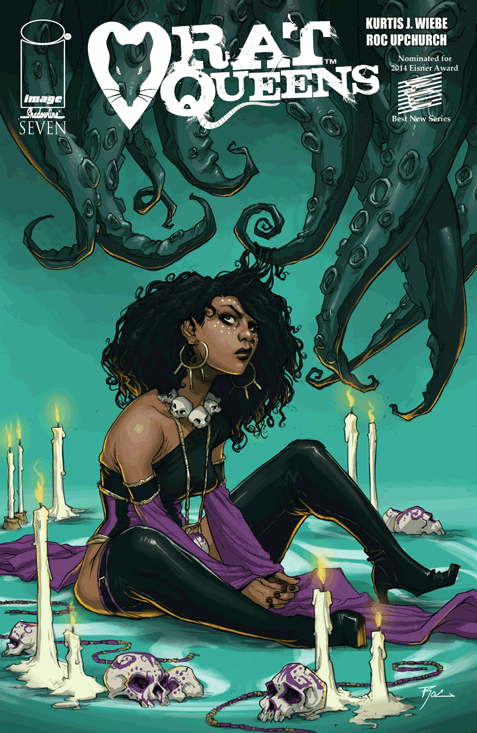 Rat Queens co-creator Kurtis J. Wiebe has posted a statement regarding his co-creator Roc Upchurch’s recent arrest for domestic violence after attacking his ex-wife. The upshot: Upchurch is off the book.
Rat Queens co-creator Kurtis J. Wiebe has posted a statement regarding his co-creator Roc Upchurch’s recent arrest for domestic violence after attacking his ex-wife. The upshot: Upchurch is off the book.
After a few days of reflection and going through a roller coaster of emotion, I’ve realized I’m not angry about this revelation. I’m deeply saddened. When you work with someone so closely on a project that is so personal, you are much more than creative collaborators, you become friends that feel like family. I have a lot of love for Roc Upchurch, I’ve spent a lot of time with him, at conventions and signings and quiet times over dinner when the crowds have gone away. Shannon and I have spent time with his wife, whom we admire greatly. With everything that has happened, I still care about and love Roc and my greatest hope is that in all this there is an opportunity to find help and for healing to take place in his family. They are never far from our thoughts.
I’m not a stranger to domestic abuse. I know that keeping abuse a secret and being afraid to speak about it are why so many people suffer in silence. It is a topic that needs to be openly talked about and there needs to be a feeling of safety and acceptance for those that come forward with their stories. It is why I am addressing this news rather than burying my head in the sand.
I want you to know that Rat Queens means the world to me on a personal level and my mission for the series is unchanged. I want to write stories about women that I see in my everyday life, about friendship and to make comics that include and embrace diversity.
As of today, Roc Upchurch will no longer be illustrating Rat Queens. This is going to be a transitionary period for the series as we rebuild and prepare for a new start. I am committed to Rat Queens, to stand by what it has always been praised for and to prove to the fans that they weren’t wrong in loving it.
Earlier today I quoted a piece that suggested that Upchurch would not undergo any repercussions for his actions. IN this case, that was incorrect.
Blog: PW -The Beat (Login to Add to MyJacketFlap)
JacketFlap tags: Legal Matters, Jack Kirby, Top News, Add a tag
I’ve long been awaiting Jeff Trexler’s analysis of the Marvel/Kirby Settlement, and he starts a two-part piece with Should the Kirby Family Have Settled? In case it hasn’t been explicitly stated enough, it was Trexler’s exploration of the potentially ground breaking work for hire aspects of the case that Kirby family attorney Marc Toberoff seems to have used to get the Supreme Court to even look at the case. To allow it to go to decision would have established an important precedent—but it was extremely risky for the Kirby heirs:
That’s not an unreasonable point of view, but it’s also not entirely fair. To see why, it can help to compare the Kirbys’ situation with that of the Siegel heirs in their own pursuit of a historic precedent. As we saw with the Siegels, the calculus in the Siegel case involved more than a decision between a win and a loss. The Siegels filed their lawsuit after agreeing to a set of terms that their previous attorney had informed them was legally binding; the likely and ultimately realized worst-case scenario was that the Siegels would quote-unquote lose with an eight-figure payout. The Kirbys, on the other hand, were in Schroedinger’s Court – the case for the moment was dead and alive, but once the Court observed it the lawsuit would reduce to just one of these states with no in-between.
Trexler also suggest that the votes on the final case may not have been the ones we were expecting. Justice Ruth Bader Ginsburg—who actually requested Marvel answer the petition—may not have been all pro-freelancer:
Nonetheless, while Ginsburg’s dissents in such infamous cases as Citizens United (opposing corporate personhood) and Hobby Lobby (opposing the corporate religious exception for birth control coverage in Obamacare) have made her an anti-corporate hero, her approach to copyright cases is far more tempered. Exhibit #1: Justice Ginsburg wrote the majority opinion in the equally notorious case of Eldred v. Ashcroft upholding the constitutionality of the Sonny Bono Act, the law that extended the term of copyright and kept Mickey Mouse out of the public domain.
Ginsburg also concurred in the Grokster case, an unpopular decision (in free-culture circles, at least) that sided with the music companies against those who believed that online file sharing should be left alone. Moreover, Ginsburg sided with the majority in the recent Aereo case, which helped the big TV networks to keep an Internet start-up from rebroadcasting freely available TV signals. Opposing Ginsburg & the rest of the majority in defending the rights of the corporate copyright establishment: conservative Justices Scalia, Thomas and Alito.
In a subsequent piece, Trexler will look at what we know of the settlement, which it’s been suggested, included a mid-eight figure monetary sum.
I urge everyone to just go read the whole thing. Given what we know, it’s quite possible that we have Trexler himself to thank for the circumstances that allowed the Kirby heirs and Marvel to come to an agreement which allows Jack to finally get his due in the modern Marvel Universe. And for that, we all owe him a huge thank you.
Blog: PW -The Beat (Login to Add to MyJacketFlap)
JacketFlap tags: Dean Motter, public service, News, Graphic Novels, Sociology, Legal Matters, Politics, They hate us!, Breaking News, Obama, health care, Nathan Schreiber, Obamacare, Top News, The Legal View, Affordable Care Act, Add a tag
 A graphic novel has become Exhibit A in the latest Obamacare controversy.
A graphic novel has become Exhibit A in the latest Obamacare controversy.
Clear, simple, understandable, useful – those are just a few of the words that recurred in reviews of Health Care Reform: What It Is, Why It’s Necessary, How It Works, a 2012 graphic novel by Xeric-winner Nathan Schreiber and MIT’s Jonathan Gruber.
The irony of these descriptions is no doubt evident to anyone who has been following political news over the past weeks — years after Gruber won praise for his adeptness in making the proposed health law easy to grasp, Gruber has become the center of a political storm due to his recent off-the-cuff claim that the language of Affordable Care Act was deliberately misleading and designed to take advantage of Americans’ “stupidity.”
The dust-up has given new life to the Gruber and Schreiber graphic novel, which thanks to the vagaries of Amazon pricing algorithms appears to become an expensive collectible in hardcover. Conservative sites are finding the book funny in unintended ways, although no one has yet to explain the replacement of its originally announced artist, Dean Motter. It’s natural to assume that there may have been issues of scheduling or style, but perhaps there just wasn’t a place for health care in Terminal City.
View Next 25 Posts





I’m not sure how much of a “precedent” will be set: in WA law (as well as CA, where I live) it is illegal for a for-profit corporation to utilize unpaid volunteers. That seems pretty black & white, and it seems plausible that even someone knowingly signing away their right to pay in order to be volunteer may still constitute an illegal labor practice by Reed-POP. While it may be unfortunate for ‘minions’ who were willingly giving up pay to volunteer in order to get free admission, the law is the law, and is in place to protect corporations from exploiting people (NOT that I’m saying in any way Reed-POP is willfully breaking any law, and/or trying to exploit its fans).
Volumnteers?
class action lawsuits like this are awesome, because if they win, the Lawyers will bill 99% of the award money to legal, paperwork and admin fees and give .25 to each actual “victim”
ReedPOOP. That’s too good.